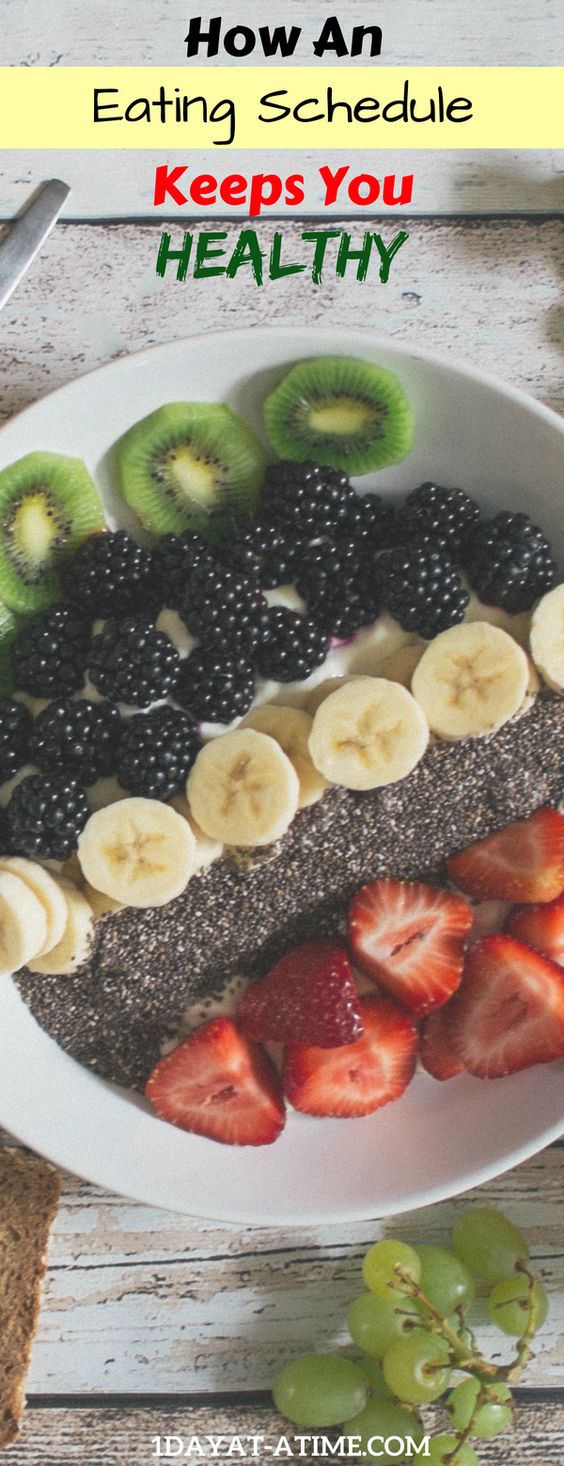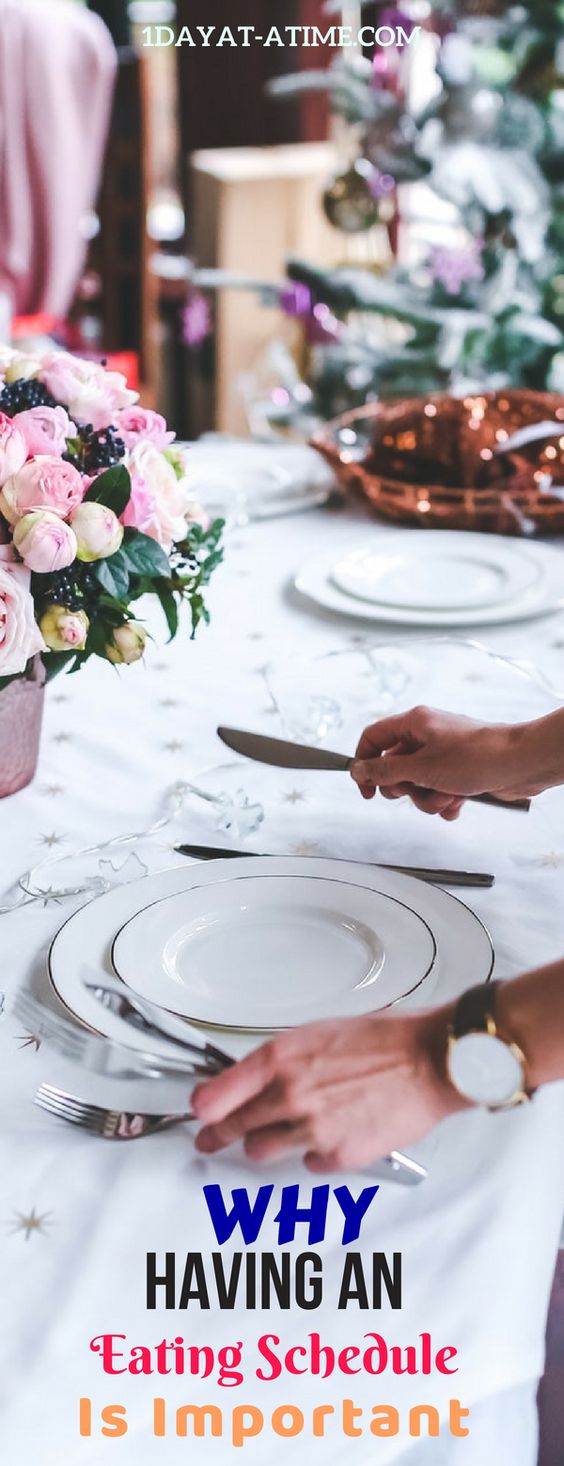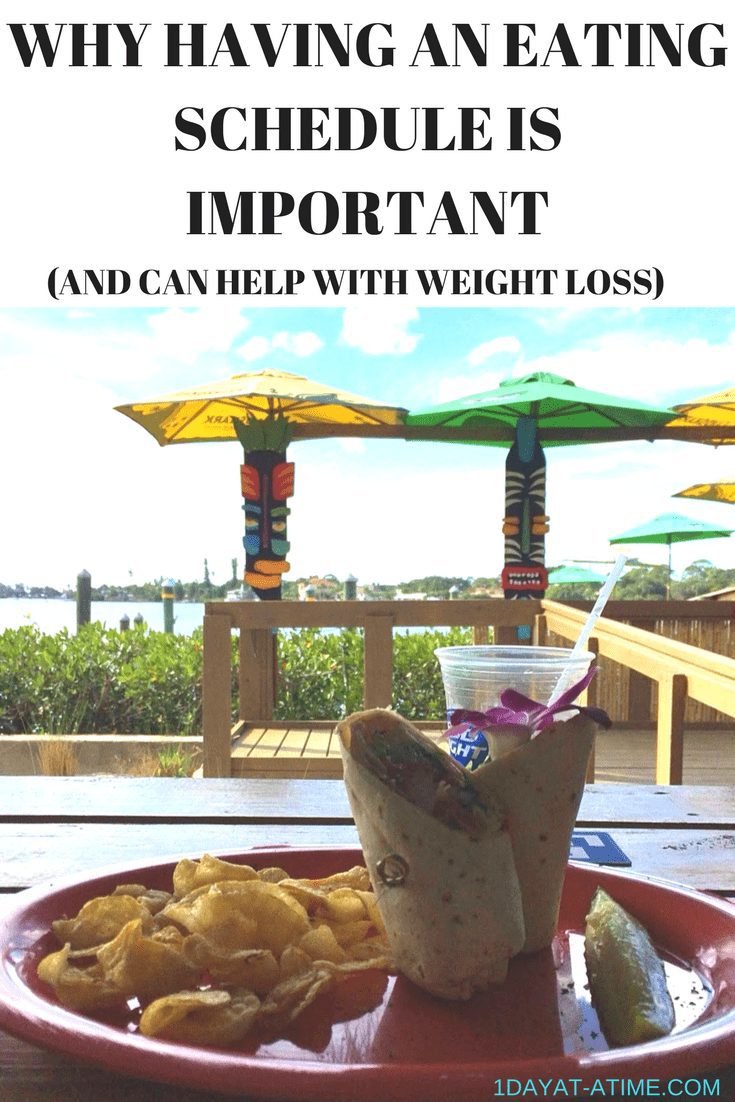information.

I’m sure you know that what you eat is important. But, did you know that the time you eat is also important? Creating a healthy eating schedule based on time is essential for having good digestive health.

You might be thinking that this seems a little extreme to plan the time that you eat each day. But if you just set a schedule and stick to it, it won’t be complicated at all. You can literally use the same eating schedule every day. And by following the eating schedule each day, you will make this a habit and it can be simple.



Eating schedule
The best time to eat meals is different for everyone and their schedule. Basically, try and wait around 3 hours between each time you eat just to give your body time to digest. If you don’t eat enough or skip a meal, your body can be missing out on the energy it needs to get through the day.
Breakfast
Do you wake up in the morning already hungry and craving breakfast?
If you answered yes…then good! This is a sign that your metabolism is on track. You digested and used up your previous meal and now you are being shown a sign that your body is ready for the next meal.
I mean, we have all heard “breakfast is the most important meal of the day” hundreds of times. And it is so* true! Think about it.

Breakfast is essential because it is a good start for your day, helping establish energy and even our mood! We should eat a protein filled breakfast within the hour that we wake up. Starting off the day with a high calorie/sugary food item will lead us to feel hungry again in an hour.
It is commonly found that skipping breakfast can throw off our whole meal plan and schedule for that day. You will either end up having an early lunch or even wait for a late lunch pushing your dinner back too! Make sure to avoid this mistake, by eating within an hour of waking up!
Lunch
Lunch is very important because it is right in the middle of the day when most of the action is taking place. This is the meal that we can get a lot of our vitamins and nutrients for our health. Skipping lunch could lead to low blood sugar levels and make it hard to focus.
Along with less energy, if you don’t eat lunch you are more likely to make negative choices. You will be more likely to choose unhealthy foods and overeat, leading to weight gain.

I try and eat lunch around noon each day. But this totally varies from person to person depending on when they wake up. Lunchtime for someone that is an early riser and wakes up at 6 a.m. will probably be eating earlier than the person who sleeps in until 11.
Dinner
The biggest rule for a meal schedule is to eat dinner no later than three hours before going to sleep. Eating a large meal and not giving yourself time to digest it all, will just end up leaving the food sitting in your digestive tract. I have also heard that it is more difficult and even uncomfortable to fall asleep on a full stomach (even though I don’t seem to have this problem).
This is an area that I need to work on, I am always nibbling on snacks until I fall asleep. After doing this, the next morning I wake up and I am bloated in my belly area. I learned that this is due to an acid-build up in the gut.

But if you do find yourself hungry before bed, keep your food portions small and filled with healthy fat. Fat-free yogurt, bananas, and white meat are all good options!
It’s not only what you eat, but when you eat!
Delaying the times that you should be eating will lead you to be hungrier later. The more food you crave, the easier it is to get sucked into just eating whats fast and nearby. This commonly leads people to eat fast food or junk food because they are easy and available.
Mood can also partake as a role in this because skipping a meal can lead you to be cranky and even exhausted/drained. I can admit that I do get “hangry” and moody when I haven’t gotten my proper meals in for the day.
Learn How Staying Healthy Can Help Reduce Stress


Setting a day in the week to plan out all your meals and even make them ahead of time can keep you on the right track. My friend is using this book and it guides her to healthy recipes, meal prepping, keeping organized. And she has even lost a noticeable amount of weight in just two weeks already!!
If you are struggling with weight loss, just by creating an eating schedule, you will be making that first step in your process of getting healthy.
And even if you are not overweight, it is still a huge health tip. Eating on a schedule is not just helpful for losing weight but for keeping the insides of our bodies healthy too!
Looking for other ways to stay healthy?
Learn Everything To Know About Weight Training Vs. Cardio
Avoid These 7 Common Mistakes Keeping You From Reaching Your Fitness Goals


Will you try eating on a timely schedule? Or do you already do this?
What are your thoughts on this subject?
Want To Raise A Strong Family? Bring Back Family Meals.
Learn How To Get Killer Abs Without Leaving The House
Learn How To Workout With A Longboard
Remember... no matter what challenges you face,
Take it 1 Day At A Time.


2 Comments
This is so true! I try to eat after a schedule because if I don’t I will end up being moody and feeling sick. Thank you for all of the great tips!
xx Freja
http://whatmakesmesmileblog.com
Yes!! I had no idea how beneficial an eating schedule is. I am glad you enjoyed my post! Thanks 🙂